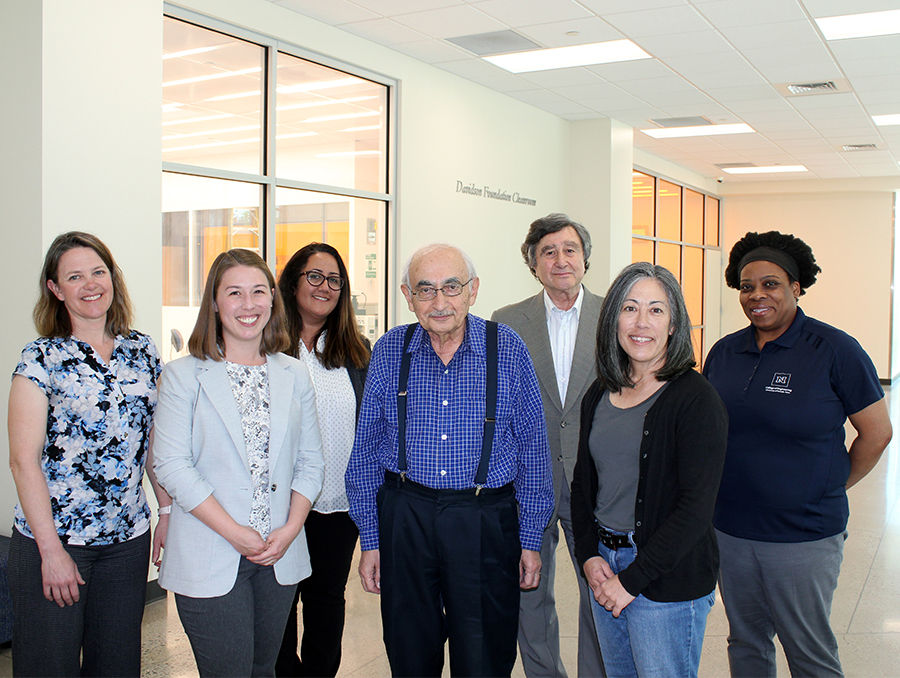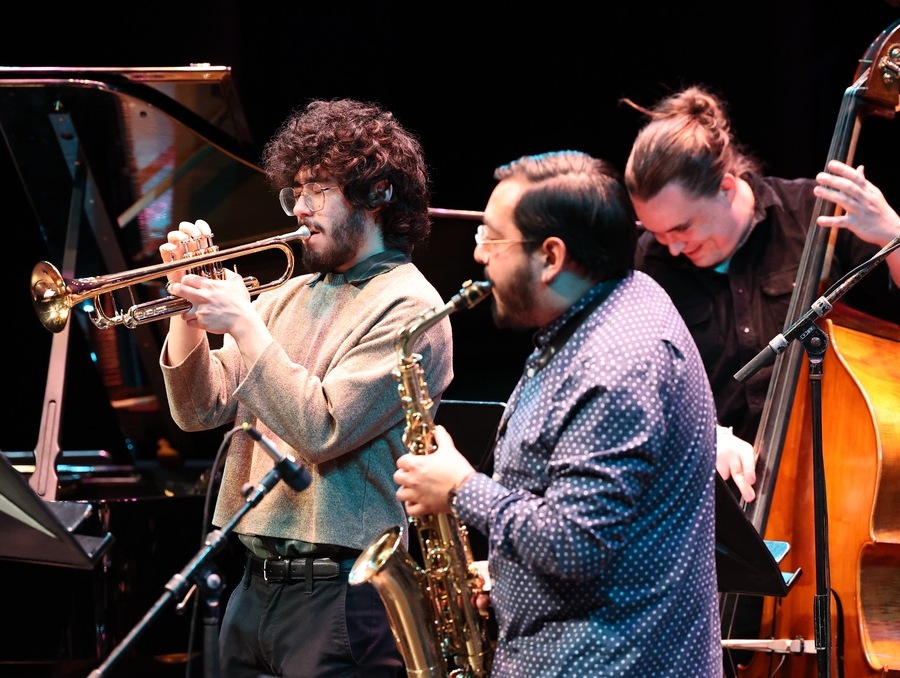Richard Kelley has spent a lot of time thinking about coffee cups.
It may seem like a simple subject, but Kelley, a Ph.D. student in computer science and engineering, is trying to figure out how to teach a robot to understand them the way humans do. It's not as simple as it sounds.
"Everything we think is hard is really easy, and everything we think is easy is really hard," said Kelley. "We have computers that can play chess better than humans, but we still don't have a robot that can jog."
Kelley, who will graduate from the University in May, was recently named the winner of the prestigious Regents' Graduate Scholar Award, which is given annually to one outstanding graduate student at the University. The award recognizes not only academic accomplishments, but also a stellar record of leadership and service to the institution.
"He has been working on so many things as a graduate student," said Monica Nicolescu, associate professor of computer science and engineering and Kelley's advisor. "They're all impressive achievements. We are so happy for the College, the Department and the lab that he's received this award."
Impressive achievements, indeed. During his time at Nevada, Kelley has developed and taught a popular computer science summer camp for high school students, moved beyond the typical teaching assistant role to teach three courses as an instructor, and worked with Nicolescu on research into human-robot interaction.
"I recognized in Richard all the ingredients that make an outstanding scholar. He has a keen intellect and the passion of a great teacher," said Yaakov Varol, chair of the Department of Computer Science and Engineering. "He was the obvious choice when I needed an instructor for our summer camp and to fill in for faculty who were on leave. He has been an inspiration and a role model to his peers and to younger students."
Kelley describes his path toward robotics research as one of falling in love. He started his undergraduate studies at the University of Washington as a classics major and somewhat reluctantly took a course in computer science to meet a requirement.
"I took my first class and I just fell in love," he said. But he quickly realized advancing in computer science would require a change in plans. Attempting to read a well-known book in the field, "The Art of Computer Programming," he struggled to keep up with the math.
"I said, if I'm ever going to read this book, I need to get a math degree," said Kelley. After graduating with a bachelor's degree in math, he came to the University of Nevada, Reno in 2006 to pursue a master's in computer science with an interest in cryptography. But shortly after he arrived, he was invited to work in the robotics lab.
"And you fell in love a second time," said Nicolescu with a smile.
Kelley changed plans again, shifting to pursue a Ph.D. with an interest in robotics. Now, he's close to wrapping up a doctoral dissertation that focuses on what he calls intent recognition.
"The problem I'm working on is how to give a robot the ability to understand the activities that people perform," he said.
The goal? To develop a robot with the social intelligence of a four-year-old. At the age of four, Kelley and Nicolescu say, most children are able to understand how to interpret human interactions.
To get there, the process has involved, in Kelley's words, a lot of coding, a lot of math and a lot of frustration.
"It's basically statistics," Kelley said, "if I had to sum it up in just a word."
While acknowledging the complexity and unpredictability of human behavior, Kelley and Nicolescu have worked to develop statistical models that might help a robot predict what a human is going to do.
Kelley, gesturing toward his own coffee cup, explained that a robot might be programmed to recognize a human reaching for a cup and know that a likely next action would be for that person to take a drink. But it's not always that simple.
"If I know that you've been drinking from that cup for 30 minutes, the probability increases that it's empty and you want to throw it away," Nicolescu said. "People use these cues."
But can robots be taught to use these same cues? Kelley describes two main requirements to get there: to model what people do and to model human common sense, saying that the second task is significantly more challenging.
In an attempt to help model common sense for robots, Kelley and Nicolescu downloaded all of Wikipedia a couple years ago and parsed it to correlate activities and objects.
"For example, cup appears next to 'drink' far more than cup with 'throw,'" said Kelley.
While Kelley and Nicolescu draw on sophisticated models and computer programming to do their work, they also give aspiring computer scientists an opportunity to get involved in the lab.
A high school intern is going to be starting in Nicolescu's lab next semester - her interest was piqued during a Nevada Bound tour. She's been accepted to the University of Nevada, and Nicolescu invited her to intern in the lab before she begins classes in the fall. A former high school debater on a team Kelley coached also did an internship in the lab.
"She kept saying to me, 'Mr. Kelley, can you build us a robot,' and I said, 'Why don't you come build robots with us,'" Kelley said.
Kelley's desire to share knowledge stems from a long family history in education.
"My family's been involved in teaching almost a century," he said. "Every generation, as far as I can remember, has had a teacher in it."
What's next for Kelley? He plans to graduate in May, and so far he's keeping his options open.
"One of the really nice things about computer science is that the job market is still pretty good," he said. He says he's attracted to the idea of a start-up but also wants to continue to stay involved with teaching.
"I'd like to stay connected to the University," he said.











